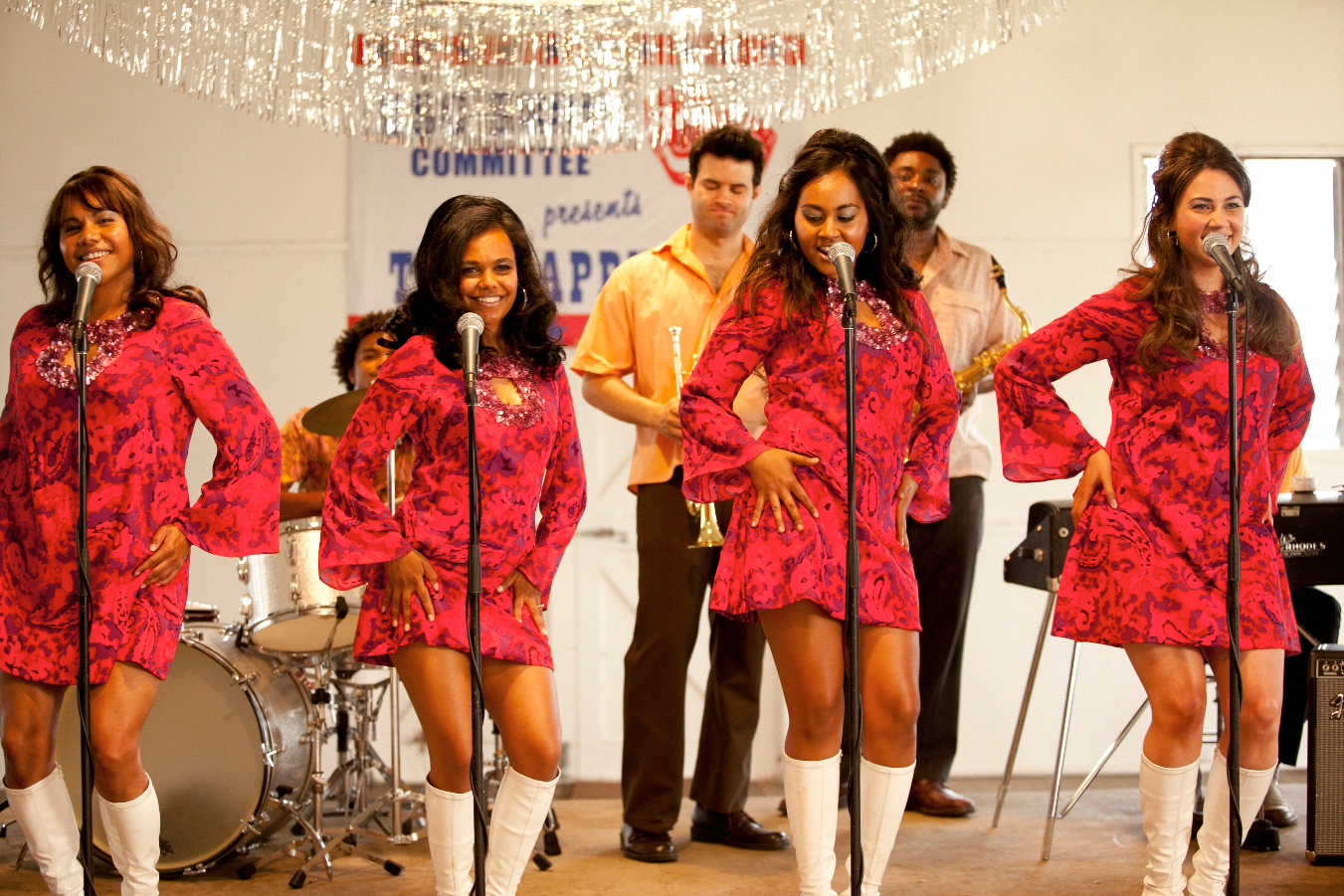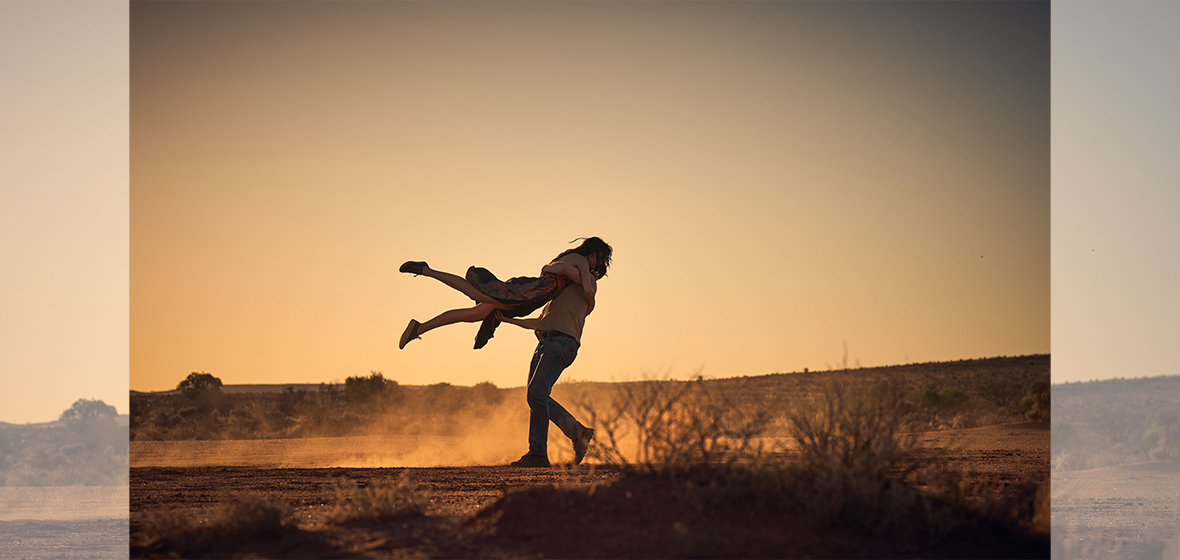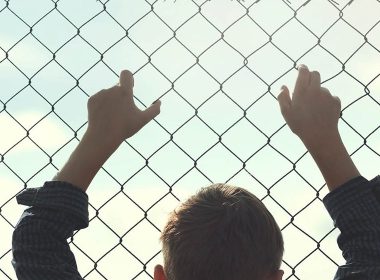“What I do is have this net, which allows them to make bold decisions with a safeguard around it. At the end of the day, we must do it within a budget and a schedule.”
Over the past 15 years, Rosemary Blight and her production company, Goalpost Pictures, have produced some of the most exciting independent Australian productions for local and international audiences.
On the cusp of releasing Carmen, an ambitious project directed by French dancer and choreographer Benjamin Millepied, Blight talks to the Journal about what led her to this unique project, what she looks for in new projects, and the future of the industry in NSW.
Carmen is an international production – a French director, British, Mexican and Spanish actors, and an Australian producer. How did you get involved with this project?
Benjamin and his French producer had been trying to set up production in Mexico and LA. When COVID hit, Benjamin’s partner, Natalie Portman, was coming to Australia to work. He asked around, and my name and Goalpost Pictures were suggested, so I got this phone call from Benjamin Millepied. And it was just so wonderful because I have admired him for many, many years: what he did in Black Swan was astounding, and [also] what he has been doing with the LA Dance Project. He’s brave and he tries to do different things. It is a great privilege to work with an artist like that. And I knew it would be challenging and an interesting wild ride. But that’s why we do this. It shakes you up. So we had this great phone call and got on well. We walked around Sydney together, through all the back lanes, we ended up in Newtown, and we just roamed around and talked about what he wanted to do. It was exhilarating because Carmen is a total reimagining.
As a producer, how do you like to collaborate with an artist?
What I do is facilitate the vision of an artist. The more artists you have worked with, the more you can contribute. The great exciting collaborations are when the artist wants that input. At the end of the day, there cannot be two directors – it is Benjamin’s film. But what I can do along the way, especially with a debut feature maker, even though he is an acclaimed creative, I can use my screen experience. So we just talked about it. We had many, many conversations and made many decisions together. What I do is have this net, which allows them to make bold decisions with a safeguard around it. At the end of the day, we must do it within a budget and a schedule.
How did you become a producer?
I did a communications degree at Macquarie University and fine arts at [the University of ] Sydney. Then I went into music. I really liked music, and spent a lot of time in the music industry working with bands – not a dissimilar role to a film producer’s. It is just one of those freaky things where I met someone, a friend, and I said, “Look, I really would like to find a way to bring music and film together because I love that.” They mentioned that a Greek–Australian girl from film school, Kay Pavlou, was looking for a producer. At that time, film schools didn’t have producers, or only a couple, and everyone wanted to be film directors – much sexier. So they used to bring outside people in. I went in and made a short film called The Killing of Angelo Tsakos, a political film about a young boy killed by a young NSW policeman. I just fell in love with producing and kept going, and then had the opportunity to work with John Maynard, the producer of Sweetie and The Navigator, with Jane (Campion) and Vincent (Ward), and I got to learn from him. Then I just put one foot in front of the other. What it’s about is finding projects you love. And when you love them, you just become passionate, and you can’t let it go. You learn it as you go through it. It’s about relationships and building on those relationships.
 Rosemary Blight
Rosemary Blight
Yours is an eclectic filmography: what do you look for in a project?
A feature film project starts with the director and a script. Much of the work in Carmen is the vision of Benjamin, and Alexandre Delanaris, who wrote the script with him. It’s like you are getting married; you are really with this person for a long time.
They have you on speed dial, right? And vice-versa.
You want to respect their ideas for the movie they want to make. You want to feel that the movie has something to say. Film’s a very powerful medium; it still is despite all the streaming – film can still hit hard. Films can have long lives and change things – not change, but move the dial in conversations. And so that’s what I look for: something to say. The director has to be someone who clearly understands what they want to do with the work. There are not millions of auteurs in the world. Very few. But when
How do you see the state of the industry in NSW?
It’s booming. There is so much production. It’s exciting but also scary. The great thing is, if you want a job, they are out there. So if you’re below-the-line crew – gaffers, grips, etc. – there is so much work for people. The challenge is the cost of production going up. And the cost of living is going up as well. That’s affecting the production costs. How do we take an idea that we just fell in love with because it’s sort of crazy and wild and distinct? How do we fund it? Because no one wants to fund a $20 million art film. And that makes sense. It’s getting very, very hard to raise funds for films. I’m going to the Cannes Film Festival this year. We have a couple of films we are taking, but principally, it’s to try to understand what the market is saying and how people are working, because that’s very challenging. We have 60 per cent of the production of Australia in NSW. So the pressure on the NSW production community is great. It’s expensive to work here at the moment, and we don’t have a lot of studio space available. And that’s challenging, as much as I want to believe there’s an ecosystem with international and Australian production all working together. Fox is now Disney Studios. Where do Goalpost Pictures and independent productions go? If we wanted studio space, we would probably have to go out of state, and we don’t want to do that. People have family and live here. You don’t want to spend 12 months away from home. I feel good about the change of government in terms of the arts. The challenge for us will be that the minister has many portfolios, so we must speak clearly about what we need. And it’s an interesting fit because the film combines art and economics. We need further support for Screen NSW, to help create environments and programs to bring people into the industry. We really need a voice for the industry. So that is something, particularly in NSW, which has been worn down a bit over the years compared to Victoria, Queensland or Western Australia.
Is it striking a balance to support large production and give a chance to smaller productions?
Absolutely, we need to create a space for these new voices. We were all so proud of Warwick Thornton, Wayne Blair and Dylan River, and other First Nations filmmakers. It took 30 years, 30 years plus, of the Indigenous unit at Screen Australia to build that up. But now we need to open the door to other voices. Where are the filmmakers from non-English- speaking backgrounds? We need to find those voices. And we need to have an environment where those voices can get support. There are certainly some great programs, but at the end of the day, you need to have money to support them. People can’t live on air. So I think if you want to talk about [film in] NSW, can we build back our Screen NSW, after many years of its being chipped away?

“Truth moves people. It’s an emotional connection. And if you can emotionally connect people to the work, they will go to all sorts of places with you”
What moves an audience?
Truth moves people. It’s an emotional connection. And if you can emotionally connect people to the work, they will go to all sorts of places with you. I’m a member of the Academy, and the best part of being a member of the Academy, apart from being a member of the Academy, is that during the Oscar run-up all the international movies from all the obscure countries of the world submit their non-English-language films. And a lot of them you never, ever see here. And you see so many incredible films. It doesn’t matter if a film’s from Iceland because it’s truthful and moves you, even if for some of it you can’t understand a word. But it’s also the power of seeing a new part of the world and going into someone else’s world. And that’s what Wayne Blair and Tony (Briggs) so successfully did with The Sapphires. They took people into a world that people connected with, even if they weren’t First Nations Australians. It didn’t matter. Everyone has families. And everyone has a family that’s been torn apart in some way. That film went all over the world. Everyone related to it. And I think Wayne and Tony were clever in having this sort of soul music element running through it, which was a great universal unifier. You could tell it was like a Trojan horse – “and now we’ll tell you a story about the Stolen Generations”.
What’s next for the industry?
Streaming has changed everything for us, and COVID accelerated it. We used to fund things based on theatrical [release in the cinema] and then you’d go to ancillary markets. That stuff is all gone. Now you have theatrical, and then maybe you can get a secondary window and streaming, which is not a guarantee, because the streamers are sort of making up their own rules. They’ll go, “We’re buying a whole lot of films, or we’re going to make one of our own for $40 million”. Having a secondary window is not something you can rely on. This makes it very hard to decide what your budget level should be. In Australia, the streamers will have quotas; there is no doubt that the government’s made it very clear there will be quotas. It will be really interesting to see how the streamers change their business in relation to that. We’re used to them coming to Australia with very high budgets and making big shows with big stars. Now they’re entering into making Australian shows. What are those budgets going to be? Because they’re going to have to do more. We’ve done an Amazon Original movie, which we’re in post-production with, and that’s called Five Blind Dates. That will go directly to the stream, no theatrical. And we’re in a relationship with Netflix on two series. It’s single-source finance, a much simpler business equation. But you don’t necessarily keep your intellectual property. You can do quite well if you can get returns from international sales. Without a doubt, they’re here to stay. There are another couple of new doors opening – Apple is starting to talk. We’ve got more doors to knock on.
Carmen is in cinemas now.




